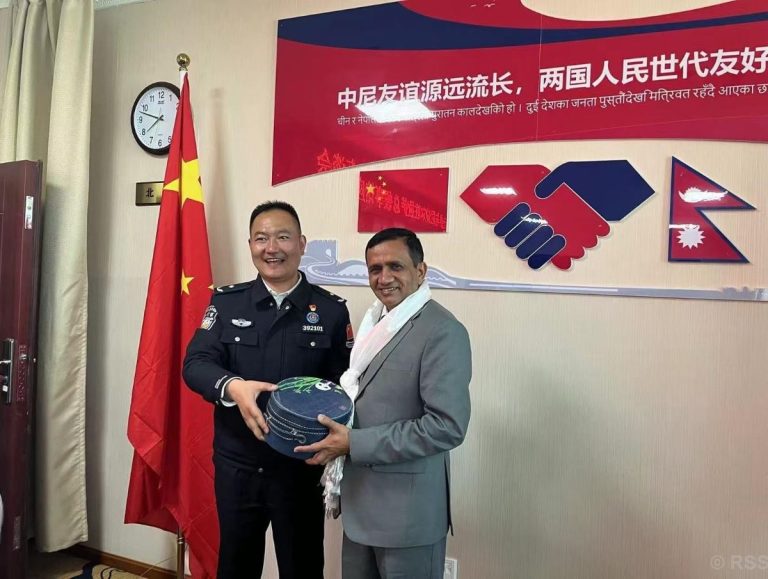Efforts to improve Nepal-China trade relations gained momentum through recent meetings in Lomanthang and Jomsom. The events, hosted by the Nepali Consulate General in Lhasa, brought together local officials, representatives, and security chiefs to discuss better border management and trade support.
In Lomanthang, leaders such as Raju Bista, Chairperson of Loghekar Damodarkunda Rural Municipality, and Tashi Nurbu, Chairperson of Lomanthang Rural Municipality, took part in the talks. The discussion in Jomsom included Bishnu Prasad Bhusal, the Chief District Officer of Mustang, along with social workers and local security heads.
A major concern in both meetings was the lack of basic infrastructure on the Nepali side of the Korala border. Participants highlighted a four-room building constructed by the provincial government meant to support cross-border trade. However, it still lacks water, electricity, and staff.
In contrast, the Chinese side has already built modern facilities at the Korala transit point. This difference has made it harder for Nepal to match the pace of development and benefit equally from the trade route.
Local representatives also called attention to a policy that requires foreign visitors to pay at least USD 500 to enter Upper Mustang. This high fee, in place because Upper Mustang is a restricted area, is seen as a barrier to both tourism and trade growth. They pushed for a review of this rule to help encourage more regulated travel and business in the area.
Another key request was the building of full border infrastructure at Korala. This would include services for immigration, customs, and quarantine. Local leaders believe that such development is vital for handling the entry of foreign nationals and goods in an orderly and secure way.
Consul General Laxmi Prasad Niraula addressed the concerns raised in both locations. He promised to help raise the issues with higher authorities and seek practical solutions. He also noted the importance of better cooperation between Nepal and China for the success of the Korala trade route.
Following the meetings in Mustang, Niraula traveled to Drongpa, located in China’s Xizang region. There, he met with top officials from customs, immigration, and local port management. The two sides agreed to take steps to make the Korala border point fully functional. Both parties expressed a shared goal of improving infrastructure and working together to ease trade and travel across the border.
This round of talks marks a step forward in Nepal’s effort to build stronger ties with China, especially in remote areas like Upper Mustang. Local leaders are hopeful that with joint commitment, the Korala point can become a key gateway for trade and travel in the Himalayan region.
The government of Nepal has been under pressure to act quickly. Without matching infrastructure on the Nepali side, the Korala route risks remaining underused despite its potential to boost the economy of Mustang and nearby districts. Local stakeholders want both governments to act soon and make the border crossing fully operational.
The meetings in Lomanthang and Jomsom offered a platform for honest dialogue between communities and officials. As talks progress, all eyes will be on how fast both Nepal and China can turn their promises into action on the ground.


